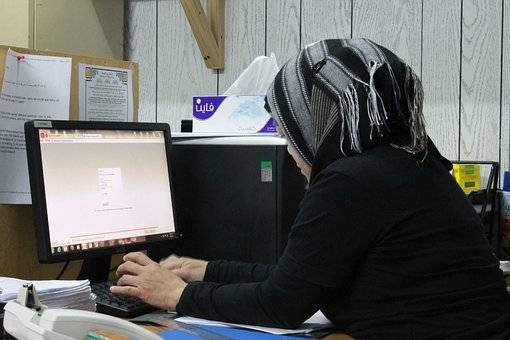At times people do take a break from work, and the cause they state is burnout. Recently, Jacinda Ardern, the Prime Minister of New Zealand, availed a similar pathway, where she decided to resign. On an international level, psychologists, journalists, and social scientists termed her decision an after-effect of emotional burnout.

This brings us to the question, “What does emotional burnout feel like?” Back in 1970, Herbert Freudenberger (American Psychologist) did coin the term “Burnout.” He described burnout as the highest degree of stress or high levels of sacrifice in the “helping” professions. There is no specific target group that gets affected by “burnout.” Starting with career-driven employees to homemakers, everyone can undergo the same thing.
What does emotional burnout feel like?
Moving on, let’s help you with further intricacies related to burnout. That way, you will be able to get a more clear understanding of the same. The feeling of “emotional burnout” makes a person exhausted. They end up feeling no motivation, and the day-to-day work also gets pretty demanding with no positive contribution.

In general, considering excessive stress, a person feels like drowning in many responsibilities, and there is no way out. On the other hand, one of the prime parts among the other long list of emotional burnout symptoms is a feeling of completely drying up. However, individuals have unique personalities, and the general triggers of burnout are also different. And as a consequence, to date, researchers have failed to agree on a fixed definition of emotional burnout.
Is emotional burnout a thing?
When looking at the concept of “emotional burnout,” it can be termed a syndrome. Now the level of intensity depends on how an individual responds to a situation of stress. The particular develops over time and eventually gets serious, causing a lot of alterations to general health.
Looking back on history, Graham Greene did come up with the term burnout in his writeup “A Burnt-Out Case.” Here, he did describe the condition of an architect who was not happy with his personal and professional life.
After that, Freudenberger introduced the term in Psychology. And following behind, the world saw Maslach covering the same in scientific literature. The process did incorporate a gradual wave of cynicism, fatigue, and diminution in the sense of responsibility among the professionals in social care.

Over the years and under the influence of research works, researchers have come up with various burnout dimensions.
Emotional Exhaustion
The dimension is all about the exhaustive feeling from the repetitive contribution at work. It is also a situation where the individual feels tired, weak, and wearied away. The people undergoing such a circumstance feel inappropriate adapting to the work culture. Also, they are now drained of the emotional energy required to learn new concepts.
Depersonalization or Cynicism
In this dimension, the physical response of a person tends to be indifference or detachment towards the work they do or the person receiving the service. In most cases, one can see inappropriate behaviors or negative body language from the person affected.
Reduction in personal achievement
The person starts to doubt their ability to perform an assigned task, and there is a negative outlook toward the result. Over time, the affected individual experiencing burnout syndrome loses their ability to produce. A low sense of morale and diminished feedback-absorbing skills follows behind.
7 signs of emotional burnout
It is a general feeling for the human to get tired, bored, and frustrated. However, what does raise the alarm is the period for which these sensations decide to last. And that is what psychologists and social scientists term the period of emotional burnout. Specific symptoms help us get a clear meaning into the process. Wondering what are those? Well, here is a list elaborating on a few.
That sense of motivation is lacking in you
You are now living on a day-to-day basis. That fire in you has kind of diminished. Also, your goal-driven personality has taken a complete back seat.
When people try to motivate you, you get irritated, and the senses are always numb for matters which require immediate attention. It always feels like you are working too much.
You are facing many issues with immunity lately
The mind and body are always in sync. And a prolonged period of chronic stress has altered effects on the immune system. Severe headaches, gastrointestinal distress, and flu are symptoms of emotional burnout.
Further, one can also notice burnout disrupting their basic self-care routine, sleep schedule, and nutrition intake. The body becomes prone to multiple diseases and physical ailments.
The feeling of being jaded
To a certain extent, everyone feels frustrated and stressed at work. However, a prolonged period of pessimism over daily tasks and seeking no pleasure in completing the same can be alarming.
The person often is seen to lose their headspace of being grateful and grounded. Also, these people are always seen challenging and showing unnecessary tantrums to those around them.
Self-medication has been your latest venture
On getting hit with the feeling of burnout, you tend to search for short-term measures. You tend to avoid looking at the bigger picture and seek resort in items like:
- Drugs or alcohol
- Promiscuous behavior
- Food
- Excess watching of television or playing video games.
If you continue such behaviors, understand your needs and seek professional or emotional support.
Concentration is quite imbalanced
The inability to focus on anything is a big sign of burnout. Once, you were a multitasker, but now you cannot concentrate on a single task, which is a symptom.
Other traits include struggling to finish a particular task, juggling with thoughts, and being unable to organize a schedule for a repetitive task.
You are never satisfied
A state of panic has engulfed you in its madness, and you are always struggling with the thought of getting feedback.
On the other hand, trying to be perfect in everything you do can also be a sign of emotional burnout. You are always trying to have it all. These people are always self-criticizing and do fear the experience of shame or incapability.
You seek drastic change in surroundings
Imagination comes as an easy way out. Now fantasizing seems fun, rather than focusing on reality. The human mind undergoing a feeling of complete burnout is susceptible to the compulsion of daydreaming.
While in general, there is no harm in dreaming. However, things fall out of hand when this person starts comparing their present situation with that of the dream sequence.
How to deal with feelings of emotional burnout?
To date, there are multiple personalities suffering from the threshold of “emotional burnout.” They feel exhausted and disoriented all the time. However, one can do wonders with a positive mindset and the determination to overcome this situation.

Here is a list of several way-outs that will help you tackle the feeling of emotional burnout.
Eliminate the source of stress
The first and foremost thing you can do is stop giving attention to the core problem. If it is your work creating all the harm, try to change it. If it is your business, sit down and have your rethink your priorities.
Have a balanced diet
When you incorporate a lot of fresh vegetables and fruits in your meals, the body gets access to natural sugars and antioxidants. You will get to feel the change in your physical energy and mental stability.
Seek remedy from exercise
On exercising, your body gets a pump of serotonin and endorphin hormones. These together can work for the betterment of your emotional state of being. Make it a habit of exercising for 30 minutes daily, and you will see the difference.
Eight hours of sleep is necessary
Sleeping for a stretch of eight hours will act as a natural stress reliever. Also, it does help with your vision besides acting as a complete rest schedule. Things become more effective when following a fixed bedtime schedule for the night. People who have limited their caffeine intake have also faced great results when it comes to sleep.
Indulge in the activities of mindfulness
Mindfulness techniques are in trend nowadays. These are specific schedules that, when followed, can help you with your emotional balance and anxiety levels. There are several ways for one to practice mindfulness. The list goes as follows:
- Yoga
- Breathing exercises
- Meditation
- Long walk
- Maintaining a journal
If possible, go on vacation: Because the feeling of emotional burnout makes you susceptible to daydreaming, why not try the same? By means, you can go on a vacation and experience all that you have imagined so far.
Emotional burnout is a deep-rooted sense of lacking, fatigue, and tiredness, hindering your advancement. It will require you to prepare yourself, both physically and mentally, to overcome such a situation. You can give in your best, but if things continue to exist, do not hesitate to consult a doctor.



